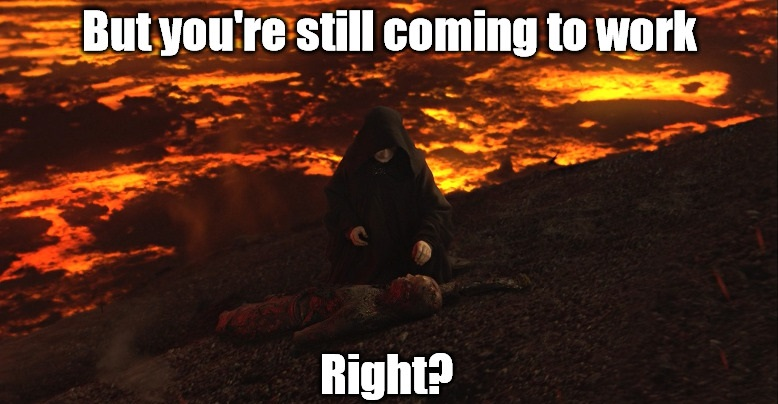Darryl is the founder and CEO of LFG, which is like the "Spotify for travel" and is an Antler program grad.
Previously he held positions in Grab and was Chief of Staff at Quqo.
Guest Author: Darryl Han
I’m still alive. In fact, I’m here now, writing from my Antler Vietnam residency in Ho Chi Minh City. I’ve been in Vietnam for about two years now, working with and running startups.
Startups are great; there’s freedom, and there’s room to grow. But every day is a hustle, a fight for survival — internally and externally. Internally, you’re trying to ensure everyone is aligned with a common vision, and you might even have to micromanage.
Externally, you’re fighting for market share, getting pummeled by fluctuating prices, and trying to convince investors to fund your vision and buy runway. No one really talks about the dirty underbelly of building a startup.
“Timing, perseverance, and ten years of trying will eventually make you look like an overnight success.” — Biz Stone, Co-Founder of Twitter (X)
Before I joined Antler’s sixth Vietnamese residency, I took a two-month mental and physical break back home in Australia. Before that, I was Chief of Staff at a Vietnamese B2B startup in the traditional retail space, covering all the above aspects for the previous startup I worked for.
Everyone who has worked in Vietnam’s traditional retail market, especially as a startup, will know it’s tough. I can spend hours sharing war stories. In fact, I did, with some fellow industry peers in my Antler cohort.
Anyway, TL;DR — while transitioning out of my full-time role, I went back to Australia (my home, Brisbane, to be exact) to celebrate Chinese New Year with my family and take a break from the startup bustle of Southeast Asia. (To clarify, I still worked remotely for a bit.)
Here are some things I came to realize while being back in Australia, ‘peacing’ out:
- It’s OKAY to be burnt out.
You’re only human. I like to think that even a machine running at high speed and efficiency needs cooling and maintenance to prevent malfunction or systematic errors. In fact, machines, like our computers, overheat. And what happens when these machines overheat? Rhetorical.
“Give up on the delusion that burnout is the inevitable cost of success.” — Arianna Huffington, CEO & Founder of Thrive Global
2. It’s OKAY to peace out.
Don’t be pressured by societal dogma requiring ‘no gaps’ in your CV. I’ve seen many profiles today where the person themselves is a very capable person having taken ‘personal/career’ breaks or sabbaticals.
At the end of the day, it’s honestly what you make of it yourself, i.e., knowing your personal goals and how you want your branding to be perceived.
I know managers and engineer friends who took a year off to travel in South America, got out of their comfort zones, tried new things, explored new ventures in life, and returned finding either similar-level roles as they were in previously or new positions in a different industry they figured out a new interest for.
If you’re worried you’ll become un-hireable after taking a break, don’t. There are always ways. You just need to manage your expectations and know what you are after.
3. Keep yourself active ONLY with priority tasks.
Okay, I said I ‘peace-d out’, that doesn’t mean completely stop working. While I rested, I was still actively but passively working only on priority tasks that drove high value for the startups I was involved in.
In the very first place, I burnt out trying to do so much, so the first step was to be very conscious about how much I was going to continue doing.
Besides these realizations, here are three (really sticking to the Rule of 3 here) of my go-to micro-activities to actually execute when I’m feeling burnt or stuck in the mud:
Box breathing
Box breathing is a super helpful and proven technique that can chill you out, improve your focus, and boost your overall well-being.
It’s also known as “square breathing” or “four-square breathing”, and it’s based on an ancient Indian practice called “Pranayama”.
Even the US Navy SEALs — some of the toughest people out there — use it to stay calm under pressure!
This is actually an exercise I educate my teams on, and I do short well-being sessions like this every now and then.

Running
Running is literally like a brain detox. The repetitive motion of running can be meditative, allowing your mind to wander and make new connections (cognitively).
Research shows that it clears your mind and improves focus. Science has shown that running boosts the growth of new brain cells in the hippocampus, which helps with learning and memory.
It also changes the frontal lobe, which helps with emotional regulation, planning, and focus.
Besides the cardio workout and losing a few kgs, running has always helped me recover from emotional stress.
I recall Jamie Lin, the CEO of AppWorks, telling us during our time in their accelerator program: “Run three times a week.”

Writing
Writing drives clarity of thought and ideas (actually the reason why I’m writing this article now).
Many business leaders like Andy Grove, former CEO of Intel, claims that writing (or reporting, in his case specifically) is “more of a medium of self-discipline than a way to communicate information,” whilst Jeff Bezos of Amazon has instilled a strong writing culture in Amazon.
“Writing is thinking. To write well is to think clearly. That’s why it’s so hard.” — David McCullough, 2-times Pulitzer Prize winner.
Writing isn’t just good for clearing your head — it can also help you chill out and deal with stress! Research shows that putting your thoughts and feelings down on paper can help you process and overcome tough experiences.
By writing about the bad stuff, you can gain perspective and focus on the good stuff. Plus, writing can improve your memory and help prevent burnout. And if you’re struggling with worries and anxieties, expressive journaling can be a game-changer.
It helps you make sense of your emotions, identify patterns and thoughts that might be bringing you down, and develop a better understanding of your mental state.
Look, there’s probably nothing new here, and it’s definitely not rocket science — but these are simply the realizations and activities that helped me get through my burnout period.
I hope these can provide you with some food for thought and motivation to keep moving forward.
Peace,
Darryl Han









